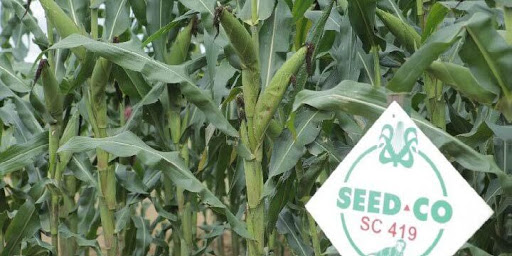Seed Co leverages exports, innovations amid regional challenges
Seed Co, a leading seed producer in Africa, has demonstrated resilience and adaptability amid drought-induced production challenges and regional economic pressures, according to its senior management.The company has capitalized on exports, financial growth, and regional product innovation to navigate the complex operating environment.
“Last year, our production (in the region) was reduced by 40 percent due to severe drought,” said group chief executive Morgan Nzwere.
“Even farmers with irrigation capacity struggled as dams and underground water sources dried up.”However, Seed Co entered the current financial year with robust carryover stocks, particularly in Zimbabwe, which proved instrumental in addressing deficits across the region.
“Zimbabwe sold about 10 000 tonnes in December alone,” Nzwere highlighted, emphasising the strategic role of the country’s stockpile in supplying neighbouring markets.
This robust export performance underscores the company’s ability to leverage surplus stocks and meet regional demands despite a challenging agricultural landscape.
Seed Co Limited, which is the Zimbabwe operations, recorded significant financial growth during the half-year, with revenue surging 73 percent to US$18,9 million, driven primarily by winter cereal sales and exports. Volume increased by 24 percent to 10 625 tonnes driven by local wheat and maize exports.
Group financial officer Tinei Chatiza attributed the 24 percent volume increase to heightened wheat seed sales despite adverse conditions.
“Wheat seed sales grew by 9 percent over the previous year despite drought-related water shortages, power outages, and elevated fertiliser prices,” Chatiza explained.
The group also benefited from exchange gains on Zimbabwe dollar-denominated borrowings, which bolstered other income. Nonetheless, the operating environment presented challenges.
“Operating expenses surged due to the hyperinflationary environment, with pricing increasingly indexed to the US dollar,” Chatiza said.
While finance costs fell to 8 percent of turnover, down from 16 percent the previous year, Seed Co remained reliant on borrowings to bridge cash flow gaps caused by delayed government receivables and escalating operating costs.
On the financial position, Chatiza noted the company maintained flat PPE (property, plant, and equipment) valuations due to limited capital expenditure during the first half.
“Inventories are primarily composed of higher maize seed stocks carried over from last year and new deliveries this year,” he added.
For the regional operations, Seed Co International saw its revenue increase by 28 percent to US$40 million driven by a 27 percent volume growth to 17 642 tonnes.
Seed Co continues to expand its product portfolio with innovative hybrid seed varieties tailored to the region’s diverse agricultural challenges.
“This year, we introduced SC673, a medium-maturing hybrid with exceptional drought and cobalt tolerance,” said Nzwere.
In farm trials, it achieved yields of up to 15 tonnes per hectare.
“Zambia, where cobalt is a major issue, stands to benefit significantly from this variety,” he added.
Similarly, the drought-tolerant soyabean variety SCZ08 and high-yielding wheat variety SCW9104 capable of producing 10 tonnes, are expected to perform well in regions with short rainfall cycles.
Other notable introductions include the Shungu maize variety, achieving yields of 12 tonnes, and the LG30741 hybrid sunflower variety, which is gaining traction in East Africa due to its adaptability and promising results.
“These new offerings strengthen our competitive edge and meet the region’s evolving needs,” said Nzwere.
Looking ahead, Seed Co is cautiously optimistic about growth prospects, supported by robust export demand and continued product innovation.
“While regional currencies face devaluation and inflationary pressures remain high, our diversified product basket positions us to weather these challenges,” said Nzwere.
Chatiza echoed this sentiment, pointing to strategic financial management as a key driver of stability.
“We are managing working capital carefully, ensuring growers are paid promptly and maintaining inventory to meet demand,” he said.
Seed Co’s focus on hybrid innovation and export-driven growth reflects its commitment to supporting regional agriculture.
As Nzwere noted, “By addressing deficits and introducing solutions like drought-tolerant varieties, we are not just growing our business, we are helping to secure food security across Africa.
“Despite external pressures, Seed Co’s resilience and adaptability position it as a key player in advancing sustainable agricultural practices across the continent.-ebsinessweekl











